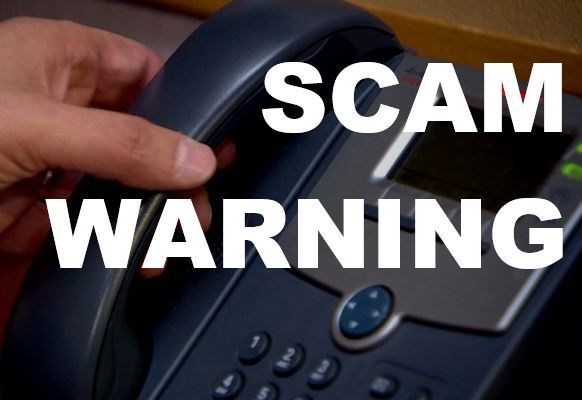DOJ Consumer Protection Unit Warns Delawareans About Scam Utility Calls
Consumer Protection | Department of Justice | Department of Justice Press Releases | Newsroom | Date Posted: Tuesday, March 5, 2019
Consumer Protection | Department of Justice | Department of Justice Press Releases | Newsroom | Date Posted: Tuesday, March 5, 2019

The Department of Justice’s Consumer Protection Unit (CPU) warns Delawareans to be wary of threatening collection calls purporting to be from Delmarva Power. The callers allege that the consumer has an overdue balance and threaten to have utility services shut off within minutes if large sums of money are not provided. The callers demand these large payments in MoneyPak cards, iTunes gift cards, or other prepaid card products. The callers may also attempt to obtain certain personal or financial information from consumers as well.
Delaware utility consumers should be cautious of any phone call where the caller employs threats to immediately turn off utility services. Current customers of Delmarva Power, or other authorized utility providers, should ask the caller to provide information that legitimate employees of actual utility providers should have readily available – including the utility account number, property address, and account holder’s name – in order to verify their identity. Consumers should terminate the call if the caller cannot provide this basic information.
In addition, consumers should inform callers that they will check recent billing statements and payment records and call back at the telephone number listed on their billing statements. If the caller provides a different number or directs the consumer to take another action, it is likely a scam.
The CPU is aware of these scam phone calls and Attorney General Jennings cautions all consumers to be diligent before disclosing any personal information, payment information, or account information to any callers. More importantly, consumers should verify the amounts claimed due with their own records before remitting any money. Some tips to protect personal information include:
The CPU Unit encourages consumers who believe they may have been scammed to call its toll-free Consumer Hotline at (800) 220-5424 or email consumer.protection@delaware.gov. Consumers who have lost money to scam calls should make a report to their local police agency.
Keep up to date by receiving a daily digest email, around noon, of current news release posts from state agencies on news.delaware.gov.
Here you can subscribe to future news updates.
Consumer Protection | Department of Justice | Department of Justice Press Releases | Newsroom | Date Posted: Tuesday, March 5, 2019

The Department of Justice’s Consumer Protection Unit (CPU) warns Delawareans to be wary of threatening collection calls purporting to be from Delmarva Power. The callers allege that the consumer has an overdue balance and threaten to have utility services shut off within minutes if large sums of money are not provided. The callers demand these large payments in MoneyPak cards, iTunes gift cards, or other prepaid card products. The callers may also attempt to obtain certain personal or financial information from consumers as well.
Delaware utility consumers should be cautious of any phone call where the caller employs threats to immediately turn off utility services. Current customers of Delmarva Power, or other authorized utility providers, should ask the caller to provide information that legitimate employees of actual utility providers should have readily available – including the utility account number, property address, and account holder’s name – in order to verify their identity. Consumers should terminate the call if the caller cannot provide this basic information.
In addition, consumers should inform callers that they will check recent billing statements and payment records and call back at the telephone number listed on their billing statements. If the caller provides a different number or directs the consumer to take another action, it is likely a scam.
The CPU is aware of these scam phone calls and Attorney General Jennings cautions all consumers to be diligent before disclosing any personal information, payment information, or account information to any callers. More importantly, consumers should verify the amounts claimed due with their own records before remitting any money. Some tips to protect personal information include:
The CPU Unit encourages consumers who believe they may have been scammed to call its toll-free Consumer Hotline at (800) 220-5424 or email consumer.protection@delaware.gov. Consumers who have lost money to scam calls should make a report to their local police agency.
Keep up to date by receiving a daily digest email, around noon, of current news release posts from state agencies on news.delaware.gov.
Here you can subscribe to future news updates.